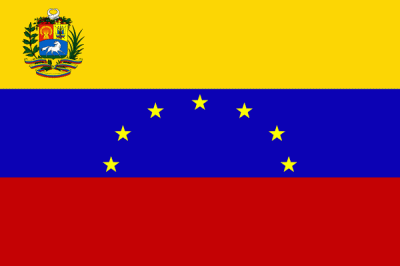Simón Bolívar's Quest for Glory
[Library of Congress Call#: F2235.3 .S66 2003. Click red title above for press home page and additional information.]by Richard W. Slatta and Jane Lucas De Grummond
Available now at significant discounts at Walmart.com or Amazon.com or other leading booksellers.
Table of Contents
Part 1: Education of a Liberator
- Introduction: Bolívar and Washington
- A Young Man Seeks His Destiny, 1783-1806
- Stirrings of Independence, 1807-10
Part 2: Struggling for Independence
- Patria Boba ("Foolish Fatherland") 1811-12
- Victorious from Mompox to Araure, 1812-13
Part 3: Spain's Reconquest of its Colonies
- Boves' "Legion of Hell," Royalist Resurgence, 1814
- Regrouping in Jamaica, 1815-16
- From Optimism to Disaster, 1816
- Frustration from Jacmel to Guayana, 1816-17
Part 4: Patriot Resurgence, Spanish Collapse
- From Frustration to Victory, 1818-19
- Turning the Tide with San Martín, 1820-21
- Delirium: Manuela and Chimborazo, 1822

- Final Triumph in Peru, 1823-25
Part 5: Political Failure to Postmortem Glory
- Trying to Hold It Together, 1825-28
- Political Decline and Death, 1828-30
- From Demagogue to Demigod
Flag of Venezuela, Bolívar's patria (fatherland) appears at the right.Excerpts from the book
"Bolívar died at age 47 in political disgrace and poverty, awaiting a ship to carry him to European exile. He had sacrificed his family fortune of perhaps 200,000 pesos for the cause of freedom. Toward the end of his life, in dinner conversation with a young French officer named Louis Peru de Lacroix, Bolívar aptly summarized the forces that led him on his path to glory: "circumstances, my talent, my character, my passions are what put me on my way; my ambition, my constancy, and the ardor of my imagination made me continue and have sustained me." Seeing Napoleon in his splendor "make me think of the slavery of my country and the glory that would befit the one who would liberate it." At his death he had little more than charity, borrowed clothing, and a largely unworked copper mine as assets."
"After his death, however, Latin Americans gradually began to realize the significance of Bolívar's contributions and sacrifices. He is revered in the countries that he liberated: his native Venezuela, Colombia, Ecuador, Peru, and Bolivia. The latter country was named for him, and he drafted its constitution. Eventually Venezuela reburied him in a "Pantheon of Heroes" and named a city, province, and its national currency in his honor. He now has near God-like status as "The Liberator," honored throughout Latin America."
"We have tried to make Bolívar's life and times accessible and intelligible to general readers and students. Our goal is to transport you back to the places and times where the Liberator met triumph and defeat. You will encounter his supporters and enemies; you will cheer and cry along with Bolívar. The Liberator did not win Spanish American independence all by himself, so we've taken pains to introduce lesser known people who also valiantly waged the battle against colonialism. We have kept scholarly accouterments to a minimum. Instead of a welter of footnotes, you will find a brief bibliographical essay directing you to other important sources in English and Spanish. The concluding bibliography lists all major works consulted as well as suggestions for further reading. A chronology of the Liberator's life and times, along with a glossary of Spanish terms, follows the main body of the text."
"Bolívar proved equally adapt at wielding the pen and the sword, however, he earned his glory on the fields of battle. Thus much of our attention focuses on his military struggles to liberate South America from Spanish rule. His repeated comebacks from defeat, flashes of military genius, tremendous mood swings, persistence, near manic quest for glory, and fall from political grace give his life an epic, tragic quality. Like the Spanish conquistadors before him, he looms larger than life. His political legacy remains hotly debated. He committed acts of almost unspeakable brutality, but no one would deny his historical significance."
"Bolívar's compelling, eventful life reminds us powerfully that individuals make a difference in history. He also recognized that "to understand revolutions and their participants, we must observe them at close range and judge them at great distance." We hope that this narrative of his life and times lets you observe Bolívar at close range, the better to judge the long-term impact of his words, inspiration, and actions."Some Bolívar Speeches and Writings
Bolívar's Ups and Downs, 1812-30